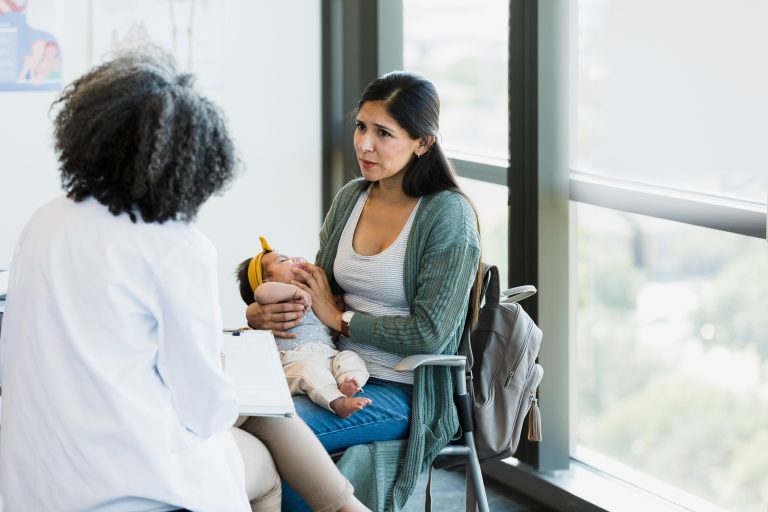You’ve dreamed of bringing your bundle of joy home. Now that it’s happened, your body and brain are doing things you never expected. Is something wrong with you? Probably not. You’re probably experiencing typical postpartum symptoms. But since they’re unpleasant, most people don’t want to talk about them.
Baby Blues and Postpartum Depression
Before labor, the only postpartum symptom you probably expected was joy. Now, your hormone levels are all over the place. As a result, you have wild mood swings. You even feel sad and struggle to bond with your baby.
Known as “the baby blues,” this sadness is very common in new mothers. For most women, it goes away within a couple of weeks. If you feel depressed for longer, it’s not the baby blues. Rather, it’s postpartum depression, which affects one in nine women after delivery, according to the Office on Women’s Health.
Because new moms often feel guilty for their depression, they don’t talk about it — not even with family members. However, untreated postpartum depression can be dangerous. It can even lead you to consider hurting yourself or your baby.
If the baby blues last longer than two weeks, call your provider immediately. Women with a personal or family history of depression are at higher risk for postpartum depression. But it can affect any new mother. Therapy, support groups and medication may help. “Furthermore, if any of your symptoms begin to significantly impact your daily life, ability to care for your newborn, or seem to be progressively worsening, do not hesitate to reach out sooner. We want our patients to know they are not alone, and we are here to help them through this major transition in their life,” says Katherin Sielhamer, DO at St. Elizabeth Physicians.
More Unexpected Postpartum Symptoms
Sadness and depression aren’t the only postpartum symptoms well-meaning family and friends keep secret. After carrying and birthing a baby, your body undergoes some serious changes.
Afterward, you may experience a variety of symptoms, including:
- Breast pain. Whether you plan to breastfeed or not, your breasts will produce milk. This can cause your breasts to hurt. If you don’t get the milk out of your breasts, you may get a breast infection. And you may experience nipple pain during breastfeeding, as the baby sucks away for nourishment.
- Contractions. Believe it or not, you may have cramps that feel like contractions after your little one is here. This discomfort is the result of your body returning your uterus to its pre-pregnancy size.
- Hair loss. A drop in estrogen can cause you to lose hair. According to the American Academy of Dermatology, your hair should be back to normal within a year.
- Hemorrhoids. These painful problems are more likely if you birth a big baby and/or experience pregnancy-induced constipation or strain for 20 minutes or longer.
- Incontinence. The pregnancy and birthing experience weakens your pelvic floor muscles. When that happens, you may struggle with urinary incontinence and leak urine at all the wrong times.
- Skin issues. The last time your hormones went crazy, you were a teenager. Your skin had trouble then, and it may after you give birth as well. Only this time, you may also have stretch marks.
- Weight gain. Following your pregnancy weight gain, you’re eager to regain your pre-pregnancy physique. But it may not happen. A year after giving birth, you may even be heavier than before getting pregnant.
Want a partner in managing unexpected postpartum symptoms? Find a women’s health provider at St. Elizabeth who can help you do just that.

